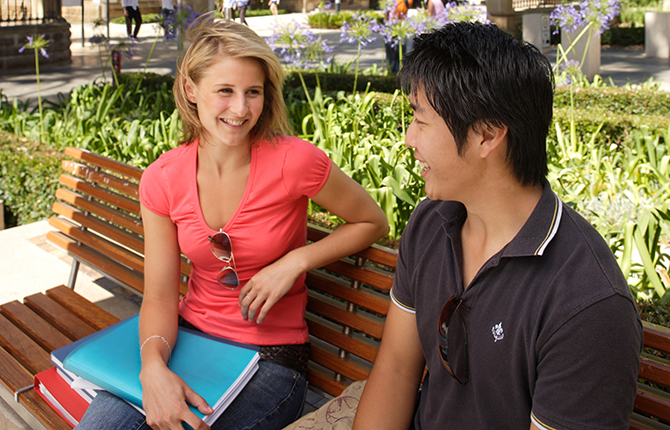
What is a postgraduate diploma course?
If you’ve already completed an undergraduate degree (or sufficient recognised studies in relevant subjects), a postgraduate diploma course is a great way to gain more specialised knowledge. This type of course gives you the opportunity to deepen your knowledge of a subject without having to take on a full master’s degree or commit to a research-based PhD. A postgraduate diploma takes less time to complete and could give you the edge over other job applicants in the hunt for your next dream job.
How do postgraduate diplomas work?
Although you are studying at the same level as a master’s degree, a postgraduate diploma entails less credits and is therefore less intensive. You can often complete it without the added stress of completing a dissertation or final project. There are many courses that come under this banner, offering you a variety of study subjects and formats.
Postgraduate diplomas are often defined as academic, research-based or vocational, which is another way of saying a practical or more ‘hands-on’ approach to learning. Vocational experience can prove invaluable once you’re actually working in your chosen profession, as you’ll have a combination of practical skills and academic knowledge. Choosing a course format that suits your learning style and facilitates what you’d like to get out of the course is the best way to decide which one is right for you. Postgraduate diplomas are also a great way to diversify your knowledge base if you’re looking to move into a different area of work within your industry or even make a complete career change.
Who can apply for a postgraduate diploma?
As with most postgraduate study programs, you can apply as an international student if you have completed a bachelor’s (or undergraduate) degree. However, some institutions will accept advanced certificates in a relevant area of study, as well as extensive associated work experience. So for example, if you’ve been working in law, you might be eligible to apply for a postgraduate diploma in a certain area of law, based on your in-depth previous experience.
Which institutions in Adelaide offer postgraduate diploma courses?
Type ‘postgraduate diploma’ into our course search and you’ll find more than 500 course listings. Flinders University and The University of Adelaide are the most notable education providers listed, but there are many incredible opportunities available in Adelaide with other reputable education providers that offer varied options for postgraduate students.
How can a postgraduate diploma lead to migration?
A postgraduate diploma can lead to migration by offering international students the opportunity to apply to the Australian government for a student visa. This visa type entitles you to live and study in Australia, as well as to work a limited number of hours (dependent on your application and the type of study you’re undertaking). A student visa is a great way to find out what it’s like to live in Australia.
Once you’ve graduated, you may be able to gain work experience while working in Australia, and apply for a Temporary Graduate visa (subclass 485) - Post-Study Work stream. Getting work experience is important if you then wish to apply for a permanent or temporary resident visa through state nomination in Adelaide.
How to apply for a postgraduate diploma
Once you’ve decided which education provider you would like to study with, and found the right course for you, check the entry requirements. If you’re unsure, call student services or the admissions department to discuss your options. Most education providers have a dedicated international student liaison who can help with your enquiries.
You may well be eligible for credit if you’ve studied other certificates and diplomas, so make sure to discuss that with the admissions office. Most education providers prefer applications to be submitted through the designated applications feature on their website, so head online and you’ll be taken through the process step by step.
If your application is successful you’ll be sent a letter of offer, which you’ll need to respond to as soon as you can. This process can take a little while, but once complete, you’ll be sent instructions for student orientation and all the details you need to get started with your master’s degree.
View all


